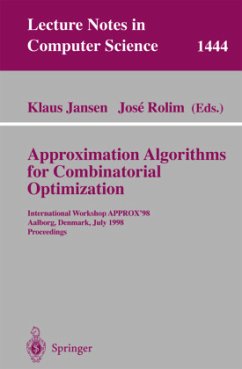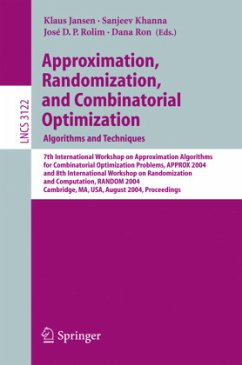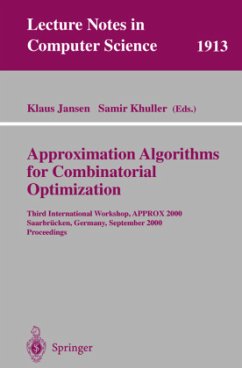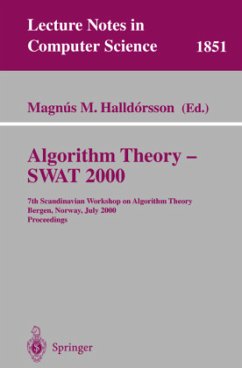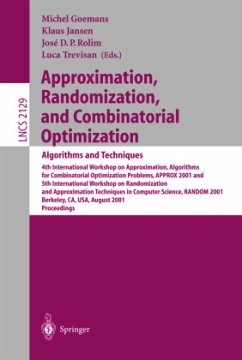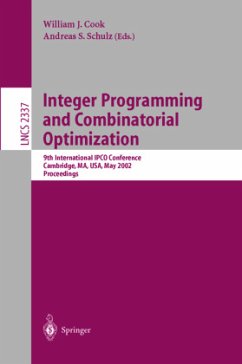
Lectures on Proof Verification and Approximation Algorithms

PAYBACK Punkte
20 °P sammeln!
Verhaltenstherapie für Ausbildung und Praxis Die Verhaltenstherapie ist fester Bestandteil der Ausbildung in Klinischer Psychologie, Psychotherapie und Psychiatrie. Die erste Auflage des "zweibändigen Margraf" hat es in kurzer Zeit geschafft, das Standard-Lehrbuch für Verhaltenstherapie zu werden. In der aktualisierten Neuauflage finden Ausbildungskandidaten und Praktiker in bewährter Form eine umfassende Darstellung von Grundlagen, Diagnostik und Rahmenbedingungen sowie eine genaue Präsentation von störungsübergreifenden verhaltenstherapeutischen Methoden und störungsspezifischen Therapieprogrammen. Zusätzlich wurde die 2. Auflage um viele Kapitel erweitert. Neu in Band 1: - Selbstmanagement und Rückfallprävention, - Verhaltenstherapie und Psychopharmaka, - Verhaltenstherapie und Allgemeinmedizin, - kognitive Verfahren nach Beck und Ellis, - wissenschaftstheoretische Aspekte, - therapeutisches Handeln als individueller Konstruktionsprozeß, - therapeutische Mißerfolge. Als Autoren konnten wieder namhafte Experten aus dem In- und Ausland gewonnen werden. Die klare Strukturierung und Didaktik sind hervorragende Merkmale beider Bände. Beispiele, Übersichten und Merksätze erleichtern die Erarbeitung und Umsetzung der Inhalte in die Praxis. Jürgen Margraf Studium der Psychologie, Physiologie und Soziologie an den Universitäten München, Brüssel, Kiel und Tübingen. Klinischer Psychologie und Research Scholar am Department of Psychiatry and Behavioral Sciences der Stanford University, Kalifornien. Seit 1999 Ordinarius für Klinische Psychologie und Psychotherapie in Basel. Autor und Herausgeber von über 200 wissenschaftlichen Publikationen, Past President der European Association for Behavioral and Cognitive Therapies, Vorsitzender des Wissenschaftlichen Beirates Psychotherapie nach dem Psychotherapeutengesetz. Jürgen Margraf hat.
During the last few years, we have seen quite spectacular progress in the area of approximation algorithms: for several fundamental optimization problems we now actually know matching upper and lower bounds for their approximability. This textbook-like tutorial is a coherent and essentially self-contained presentation of the enormous recent progress facilitated by the interplay between the theory of probabilistically checkable proofsand aproximation algorithms. The basic concepts, methods, and results are presented in a unified way to provide a smooth introduction for newcomers. These lectures are particularly useful for advanced courses or reading groups on the topic.






